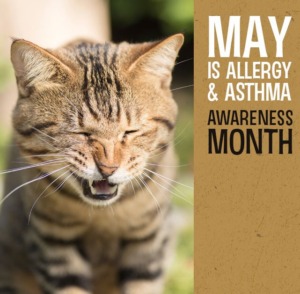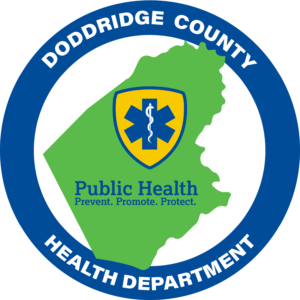Asthma and Allergy Awareness
Reducing Allergens in Your Home
Avoiding asthma triggers may help reduce the inflammation in your lungs, reduce symptoms, and reduce your need for emergency relief medication. Indoor allergy triggers, such as dust or animal dander, could affect your asthma if you are sensitive to them, and using a strategy that removes or minimizes these allergens may be helpful.
Allergens:
–Animal Dander-some people are allergic to the flakes of skin or dried saliva from animals with fur or hair. If you are sensitive and decide to have a pet:
*Consider keeping the pet outdoors
*Try limiting your pet to commonly used areas indoors
–Dust Mites-these tiny bugs, too small to see, can be found in every home in dust, mattresses, pillows, carpets, cloth furniture, sheets and blankets, clothes, stuffed toys, and other cloth-covered items. If you are sensitive:
*Mattress and pillow covers that prevent dust mites from going through them should be used along with high efficiency particulate air filtration vacuum cleaners
*Consider reducing indoor humidity to below 60 percent. Dehumidifiers or central air conditioning systems can do this.
–Cockroaches and Other Rodents-Pests like these leave droppings that may trigger your asthma. If you are sensitive:
*Consider an integrated pest management plan
*Keep food and garbage in closed containers to decrease the chances for attracting roaches and other rodents
*Use poison baits, powders, gels, paste or traps to catch and kill the pests. If you use a spray to kill roaches, stay out of the room until the odor goes away
–Indoor Mold-If mold is a trigger for you, you may want to:
*Explore professional mold removal or cleaning to support complete removal
*Wear gloves to avoid touching mold with your bare hands.
*Always ventilate the area if you use a cleaner with bleach or a strong smell
–Pollen and Outdoor Mold-When pollen or mold spore counts are high you should try to:
*Keep your windows close
*If you can, stay indoors with the windows closed from late morning to afternoon, when pollen and some mold spore counts are at their highest
*If you do go outside, change your clothes as soon as you get inside, and put dirty clothes in a covered hamper or container to avoid spreading allergens inside your home
*Ask your health care provider if you need to take or increase your anti-inflammatory medicine before the allergy season starts
Irritants
-Tobacco Smoke:
*If you smoke, visit smokefree.gov or ask your health care provider for ways to help you quit
*Ask family members to quit smoking
*Don’t allow smoking in your home or car
-Smoke, Strong Odors, Sprays and Fumes:
*Avoid using a wood-burning stove, kerosene heater, or fireplace if possible. Vent gas stoves to outside the house.
*Try to stay away from strong odors and sprays, such as perfume, talcum powder, hair spray, and paints.
-Vacuum Cleaning:
*Try to get someone to vacuum for you once or twice a week if vacuum cleaning makes your asthma worse. Stay out of rooms while they are being vacuumed and for a short while afterward.
*If you must vacuum yourself, using HEPA filtration vacuum cleaners may be helpful

